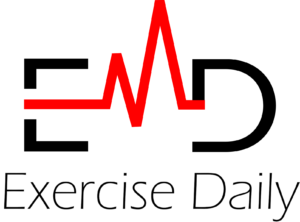Table of Contents
Exercise Daily – Are you struggling with stomach problems and want to know how to speed up digestion? If so, then this article is for you.
It is normal for everyone to have periodic digestive symptoms such as nausea, constipation, or diarrhea, as well as an upset stomach and gas.
When these symptoms recur on a regular basis, however, they can create significant disruptions in your life.
Fortunately, making adjustments to your food and way of life can have a favorable influence on your gut health.
An unhealthy diet or lifestyle can lead to more frequent digestive difficulties, and changing one’s lifestyle can frequently assist in alleviating the symptoms. A doctor can provide assistance and guidance.
Regular stomach discomfort might also be caused by an underlying medical condition, a medicine, or dietary intolerance.
In the short term, home remedies may assist in the improvement of digestion. For long-term improvement, it may be necessary to make more major dietary or lifestyle modifications.
11 Ways to Speed Up Digestion
Following are some of the effective methods on how to speed up digestion:
Eating Real Food
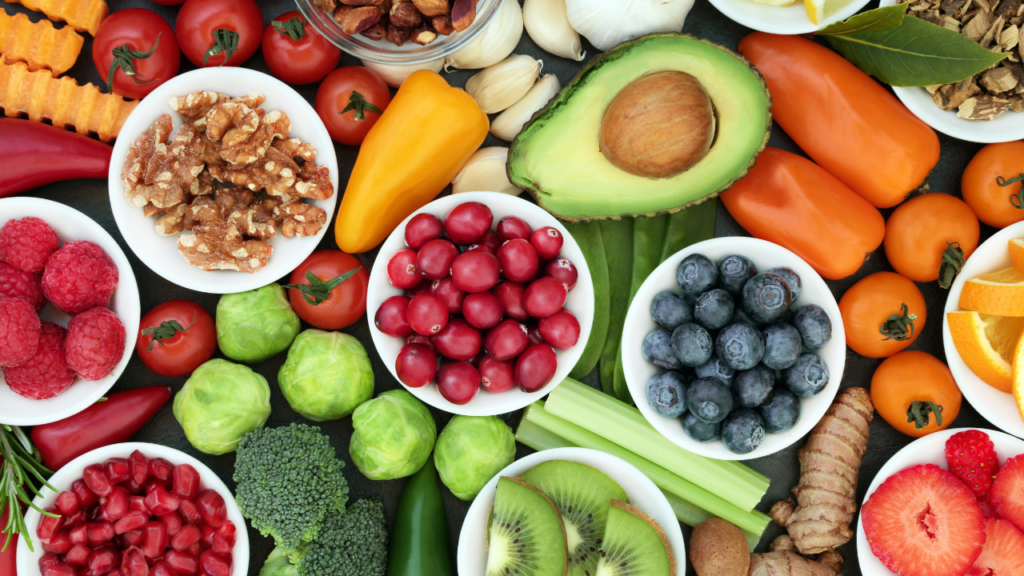
Several studies have found that a normal Western diet that is heavy in refined carbohydrates, saturated fats, and food additives increases the chance of developing digestive issues.
Increased gut inflammation, resulting in a condition known as leaky gut, has been linked to food additives such as glucose, salt, and other chemicals.
Trans fats may be present in a wide variety of processed foods. Not only have they been linked to an increased chance of acquiring ulcerative colitis, an inflammatory bowel illness, but they have also been linked to an increased risk of developing other chronic diseases.
A further concern is that artificial sweeteners, which are commonly present in processed foods such as low-calorie beverages and ice cream, might create stomach difficulties.
70 percent of participants reported experiencing bloating and diarrhea after consuming 50 grams of the artificial sweetener xylitol, while 60 percent reported experiencing the same symptoms after eating 75 grams of the sweetener erythritol, according to recent research.
According to one of the research, artificial sweeteners may also increase the number of dangerous gut bacteria in your system.
It has been shown that gut bacteria imbalances are associated with the symptoms of irritable bowel syndrome (IBS). Moreover, it also alleviates irritable bowel illnesses such as ulcerative colitis and Crohn’s disease.
Fortunately, scientific data shows that eating a diet rich in nutrients can help to prevent digestive problems from developing.
Consequently, adopting a diet rich in whole foods and reducing one’s intake of processed meals may be the most beneficial for one’s digestive health.
So eating real food is the best way if you are looking into how to speed up digestion.
Keep Yourself Hydrated

One of the most prevalent causes of constipation is insufficient hydration.
In order to avoid constipation, experts recommend consuming 50–66 ounces (1.5–2 liters) of non-caffeinated fluids every day. If you live in a hot area or engage in vigorous physical activity, you may require extra fluids.
In addition to water, herbal teas and other non-caffeinated beverages such as seltzer water can help you satisfy your fluid requirements.
Consuming fruits and vegetables that are rich in water, such as cucumber, zucchini, celery, tomatoes, melons, strawberries, grapefruit, and peaches, will also help you achieve your fluid consumption requirements.
Take A Sufficient Amount of Fiber
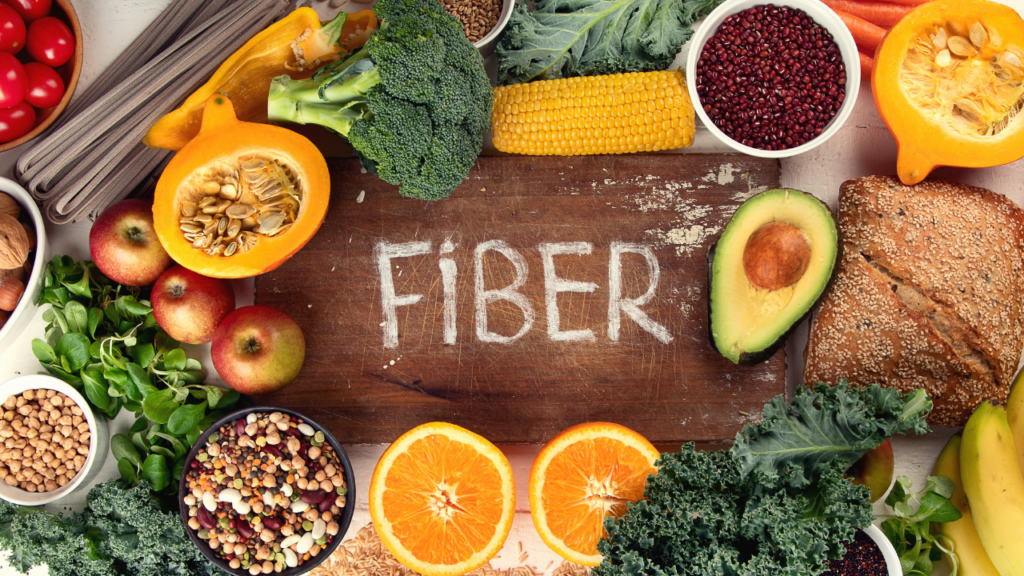
We all know that fiber is helpful for a healthy digestive system.
Soluble fiber helps to bulk up your stool by absorbing water and binding it together. Essentially, insoluble fiber serves as a gigantic toothbrush, cleaning the inside of your digestive system and keeping things flowing.
While vegetables, whole grains, and wheat bran are excellent sources of soluble fiber. On the other hand, insoluble fiber may be present in a variety of foods such as oat bran and legumes.
It has been shown that eating a high-fiber diet lowers the chance of developing digestive diseases such as ulcers, reflux, hemorrhoids, diverticulitis, and IBS.
Prebiotics are a form of fiber that helps to maintain a healthy balance of bacteria in your stomach. Consuming a diet high in this fiber has been demonstrated to lower the chance of developing inflammation of the bowels.
Several fruits, vegetables, and grains contain prebiotics. Getting enough amount of fiber will help you with how to speed up digestion.
Take Control of Your Stress

Inflammation of the digestive tract can occur as a result of high levels of stress.
Stomach ulcers, diarrhea, constipation, and Irritable Bowel Syndrome (IBS) have been linked to it.
Stress hormones have an immediate impact on your stomach. When your body is in fight-or-flight mode, it believes you don’t have enough time to rest and digest your food.
The digestive system suffers when you are under stress because your blood and energy are redirected elsewhere.
Furthermore, because the stomach and the brain are tightly linked, anything that affects the brain may also have an influence on digestion.
Stress management techniques such as meditation and relaxation training have all been demonstrated to help people with IBS feel better about themselves.
Other research has discovered that cognitive-behavioral therapy, acupuncture, and yoga can all help to alleviate digestive issues in certain individuals.
Stress management practices, such as deep belly breathing, meditation, or yoga, can thus help to improve your mental state. Moreover, they also help your digestion when used on a regular basis.
Increase the Number of Healthy Fats in Your Diet
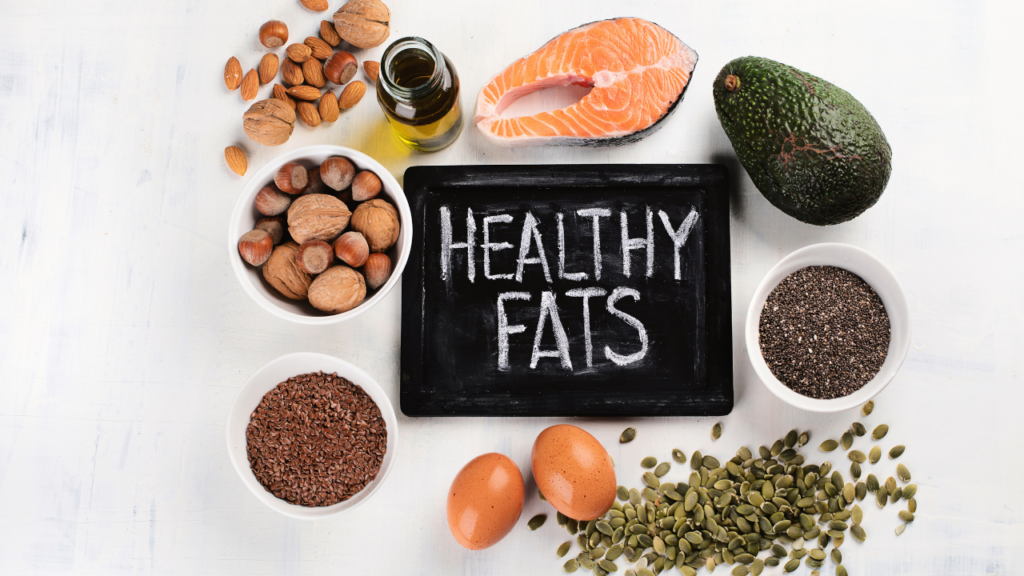
It is possible that consuming enough fat will help with digestion. Fatty foods make you feel full after a meal and are frequently required for adequate nutrition absorption.
Furthermore, research has revealed that omega-3 fatty acids may lower your chance of developing inflammatory bowel illnesses such as ulcerative colitis.
Dietary sources of healthy omega-3 fatty acids include flax seeds, chia seeds, nuts (particularly walnuts). Moreover, it also includes fatty seafood like salmon, tuna, mackerel, and sardines, among other things.
If you are serious about how to speed up digestion, then start eating healthy fats.
Eat Consciously

If you’re not paying attention, it’s simple to consume too much too soon, which can result in bloating, gas, and indigestion.
It is the technique of paying close attention to all elements of your meal and the process of eating that is known as mindful eating.
Patients with ulcerative colitis and irritable bowel syndrome may benefit from practicing mindfulness, according to research.
To eat mindfully, do the following:
- Eat your food slowly.
- By turning off the television and putting your phone away, you can concentrate on your meal.
- Take note of how your meal appears on your plate, as well as how it smells.
- Consciously choose each bite of food you take.
- Maintain a close eye on your food’s texture, temperature, and flavor.
Take Time to Chew Your Food

The process of digestion begins in your mouth. When you eat anything, your teeth break it down into tiny bits so that the enzymes in your digestive tract can properly break it down.
Reduced nutritional absorption has been linked to insufficient chewing of foods.
Chewing your food thoroughly reduces the amount of effort that your stomach needs to perform in order to convert the solid meal into the liquid mixture that enters your small intestine.
Whenever someone asks about how to speed up digestion, the first thing that comes to mind is chewing food properly.
Chewing causes saliva, and the longer you chew, the more saliva you create. During the digestion process in your mouth, saliva assists by breaking down some of the carbohydrates and lipids included in your food.
Saliva serves as fluid in your stomach, blending with solid food to ensure that it goes through your digestive tract without breaking down.
When you chew your meal properly, you guarantee that you have enough saliva for digestion to take place. Indigestion and heartburn may be less likely to occur if you do this.
Furthermore, it has been observed that the process of chewing might help to reduce tension, which may in turn help to enhance digestion.
Slow Down and Pay Attention to Your Body’s Signals
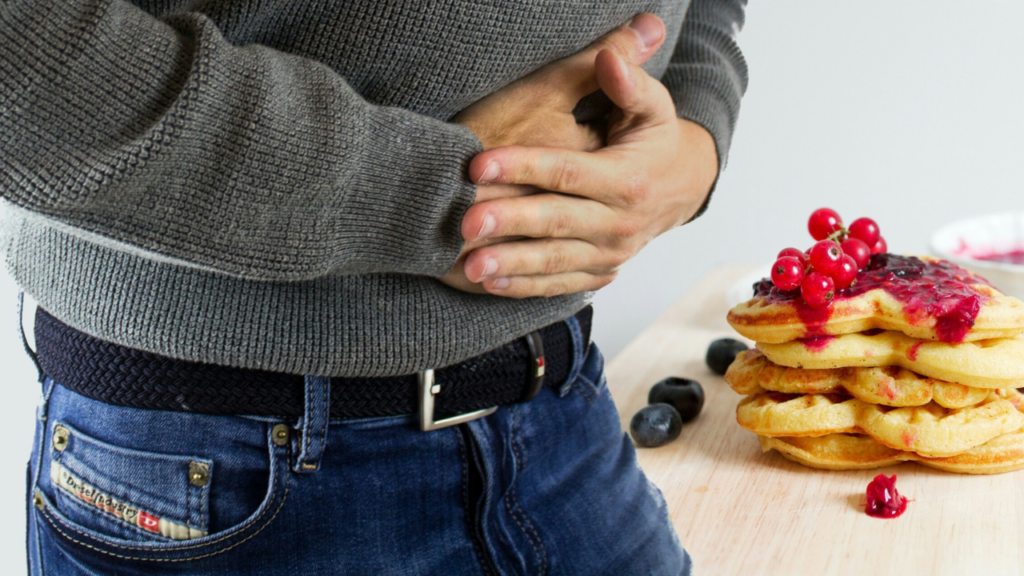
You can overheat and feel gas, bloating, and indigestion if you don’t pay attention to your hunger and fullness signals when eating.
It’s a widely held assumption that it takes your brain 20 minutes to understand that your stomach is completely full after eating.
It does take time for hormones generated by your stomach in reaction to meals to reach your brain, despite the fact that there isn’t a lot of rigorous scientific evidence to back up this assertion.
For this reason, eating slowly and paying attention to how full you are becoming is one of the most effective ways to avoid often encountered stomach disorders.
Emotional eating also has a bad influence on your digestion, as previously stated. According to one research, persons who ate while they were stressed had higher levels of dyspepsia and bloating than other people.
Taking some time to unwind before a meal may help to alleviate your intestinal discomfort. Listening to your body signals will definitely help you with how to speed up digestion.
Get Yourself Moving

Exercise on a regular basis is one of the most effective strategies to enhance your digestion.
Exercise and gravity assist in the movement of food through your digestive tract. A short stroll after a meal may help your body to move things along more efficiently.
It was discovered by one study conducted on healthy persons that moderate activity, such as cycling and running, increased gastrointestinal transit time by about 30 percent.
Another study found that a daily exercise plan that included 30 minutes of walking each day dramatically reduced symptoms in those who had chronic constipation.
Furthermore, research shows that exercise may help to alleviate the symptoms of inflammatory bowel disease by having anti-inflammatory effects on the body, such as lowering the number of inflammatory substances in the body.
Get Rid of Your Bad Habits
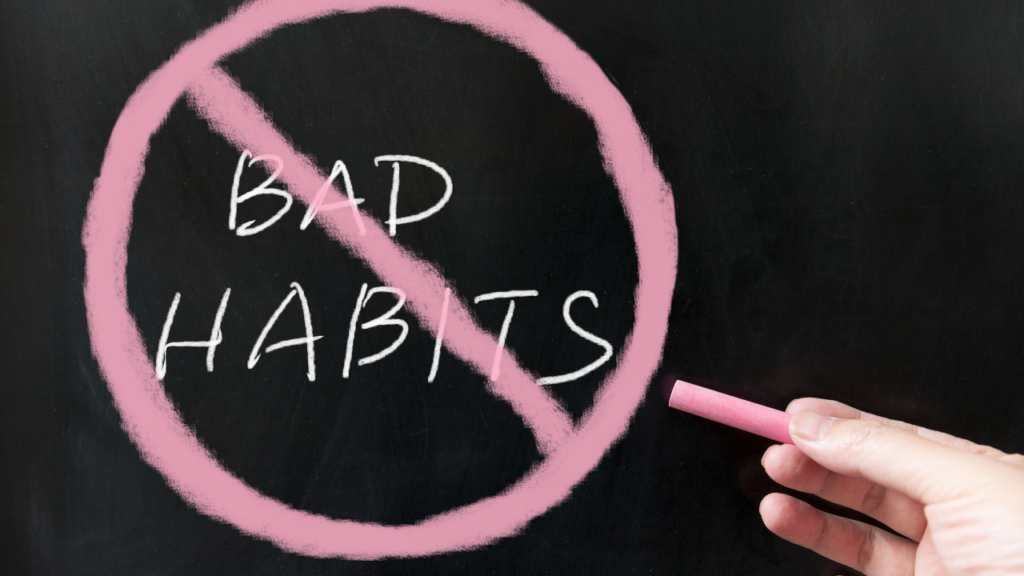
You’re well aware that poor habits such as smoking, excessive alcohol consumption, and eating late at night are detrimental to your general well-being.
In fact, they may also be to blame for a number of common digestive disorders, including constipation. So if you want to know how to speed up digestion, give up following bad habits:
Smoking
Cigarette smoking increases the likelihood of having acid reflux by approximately double.
Studies have also shown that stopping smoking helps to reduce the severity of these symptoms.
Stomach ulcers, higher surgeries in persons with ulcerative colitis, and gastrointestinal malignancies have all been linked to this poor habit, as well as other health problems.
If you have digestive problems and you smoke cigarettes, it’s worth considering whether or not stopping might be useful.
Alcohol
Alcohol can cause your stomach to produce more acid, which can result in heartburn, acid reflux, and stomach ulcers in some people.
Excessive alcohol intake has been associated with gastrointestinal bleeding in several studies.
Aside from these conditions, alcohol also causes inflammatory bowel illnesses, leaky gut syndrome, and detrimental alterations in gut bacteria.
It is possible that reducing your alcohol consumption can improve your digestion.
Consumption of Food and Drink Late at Night
Eating late at night and then going down to sleep might result in heartburn and indigestion the following morning.
Your body needs time to digest its food, and gravity aids in keeping the food you eat flowing in the appropriate direction.
It is also possible that the contents of your stomach will rise to the surface and produce heartburn when you lie down. It worsens the Reflux symptoms when you lie down after eating, according to research.
If you have digestive troubles before night, consider waiting three to four hours after eating before going to bed to give the food time to travel from your stomach to your small intestine, which will help to relieve the discomfort.
If you really care about how to speed up digestion, then avoid eating late at night.
Include Gut-Supporting Nutrients in Your Diet
Certain nutrients may be beneficial in supporting your digestive system.
Probiotics
Probiotics are helpful microorganisms that, when taken as dietary supplements, may help to enhance gut health.
By breaking down indigestible fibers that might otherwise induce gas and bloating, these beneficial bacteria improve digestion.
Probiotics have been demonstrated to alleviate the symptoms of bloating, gas, and discomfort associated with IBS, according to research.
Furthermore, they may be able to alleviate the symptoms of constipation and diarrhea.
Bacteria present in fermented foods such as sauerkraut, kimchi, and miso, as well as yogurts containing live and active cultures, are all probiotics.
Alternatively, you can take them as capsules. If you’re looking for a basic probiotic supplement, look for a blend of strains that includes Lactobacillus and Bifidobacterium.
Glutamine
Glutamine is an amino acid that helps to improve intestinal health. Several studies have demonstrated that it can reduce intestinal permeability (leaky gut) in persons who are severely unwell.
Consuming foods such as turkey, soybeans, eggs, and almonds can help you to improve your glutamine levels over time.
You can take Glutamine as a supplement, but it’s important to consult with your doctor first to confirm that this is an acceptable treatment plan for your specific condition.
If you are thinking about how to speed up digestion, take some Glutamine supplements.
Zinc
Inadequate zinc intake can result in a variety of gastrointestinal diseases. Zinc is a mineral that is essential for maintaining a healthy gut.
Zinc supplementation is effective in the treatment of diarrhea, colitis, leaky gut syndrome, and other digestive disorders, among other things.
In terms of zinc intake, the recommended daily intake (RDI) for women is 8 mg, while for males, it is 11 mg.
Shellfish, steak, and sunflower seeds are among the zinc-rich foods available.
Note: Take all these supplements with prior approval from your doctor or physician. Avoid taking them on your own.
5 Foods to Speed Up Digestion

Here are five meals that encourage better digestion and can help you avoid some of the most typical gastrointestinal problems.
Whole Grain Foods
Which is better: white or brown rice? Which is better: whole-wheat or white bread? Doctors advise choosing whole grains over refined grains if you want your gut to perform more efficiently since healthy colon function requires at least 25 grams of fiber per day.
Comparatively, whole grains give a significant amount of fiber as well as additional nutrients such as omega-3 fatty acids, as compared to processed carbs such as white bread and pasta.
When gut bacteria digest fiber, they form short-chain fatty acids, which are beneficial to the body. When these compounds are present, they promote appropriate function in the cells lining the colon, which contains 70% of our immune cells.
Despite the widespread popularity of low-carbohydrate diets for weight reduction, eliminating grains from one’s diet may not be beneficial for the healthy gut flora that depends on fiber for survival.
Eating whole-grain foods is the best way if you are looking for how to speed up digestion.
Leafy Greens
Lettuce and kale, for example, are high in fiber and include a variety of vitamins and minerals. For example, they include folate and Vitamin C as well as Vitamin K and A. Leafy greens, such as spinach and kale are also high in protein and iron.
According to research, leafy greens also contain a special sort of sugar that assists in the formation of beneficial gut bacteria in the digestive tract.
Eating enough fiber and leafy greens helps you build a healthy gut microbiome, which comprises the billions of organisms that dwell in the colon and improve digestion.
Lean Protein
People who suffer from IBS or gastrointestinal sensitivity should adhere to lean proteins and stay away from high-fat meals, such as fried items.
Increased consumption of high-fat meals can cause intestinal spasms. Moreover, the high-fat content of red meat is only one of the reasons to choose leaner cuts of meat instead.
According to experts, red meat encourages the growth of intestinal bacteria, which create compounds that increase the risk of blocked arteries.
Fruits with Low Fructose Content
For those who suffer from gas and bloating on a regular basis, you may want to consider limiting your intake of fructose, often known as fruit sugar. Some fruits, such as apples, pears, and mangoes, are particularly rich in fructose content.
Low fructose fruits can help you with how to speed up digestion.
In contrast, berries and citrus fruits such as oranges and grapefruits contain less fructose, making them easier to handle and less likely to create gas than other fruits and vegetables.
Bananas are another low-fructose fruit that is high in fiber. They contain inulin, which is a chemical that promotes the growth of beneficial bacteria in the digestive tract.
Avocado
Avocado is a superfood that is high in fiber and vital minerals such as potassium, all of which serve to maintain good digestive function and function. In addition, because it is a low-fructose diet, the likelihood of experiencing gas is minimum.
When it comes to foods like almonds and avocados, you should be mindful of portion proportions. Despite the fact that they are high in nutrients, they are also heavy in fat; thus, it is important to consume them in moderation.
How to Speed Up Digestion – FAQs
What home remedy is good for digestion?
Following home remedies will help you to speed up your digestion:
- Drink plenty of water
- Avoid to lay down immediately after easting
- Not eating late at night
- Do not drink alcohol
- Avoid smoking
What causes poor digestion?
Diarrhea, constipation, irritable bowel syndrome (IBS), inflammatory bowel disease (IBD), and heartburn are the most common digestive system issues that people experience.
You can experience them because of various factors, including an unhealthy lifestyle, inadequate nutrition, food intolerance, or even an infection.
What helps digestion after eating?
To boost your digestion after eating, you can do the following things:
- Exercise
- Do not take a nap
- Avoid carbonated drinks
- Take a walk
- Take some probiotics
What are the symptoms of poor digestion?
The following are the symptoms of poor digestion:
- Upset stomach
- Autoimmune condition
- Sudden change in weight gain/loss
- Food intolerance
- Heart-burn
- Diarrhea
Conclusion
If you suffer from occasional, regular, or chronic digestive issues, making simple dietary and lifestyle modifications may be beneficial to your overall health.
Good digestion begins with a diet that includes whole meals that are strong in fiber, healthy fats, and nutritionally dense foods.
Conscious nutrition, stress reduction, and physical activity are all good practices to include in your life.
Finally, quit unhealthy behaviors that may wreak havoc on your stomach. For example, such as smoking, excessive alcohol use, and late-night snacking — might help alleviate symptoms.
So, share with us in the comments section below that how to speed up digestion and alleviate the symptoms.

